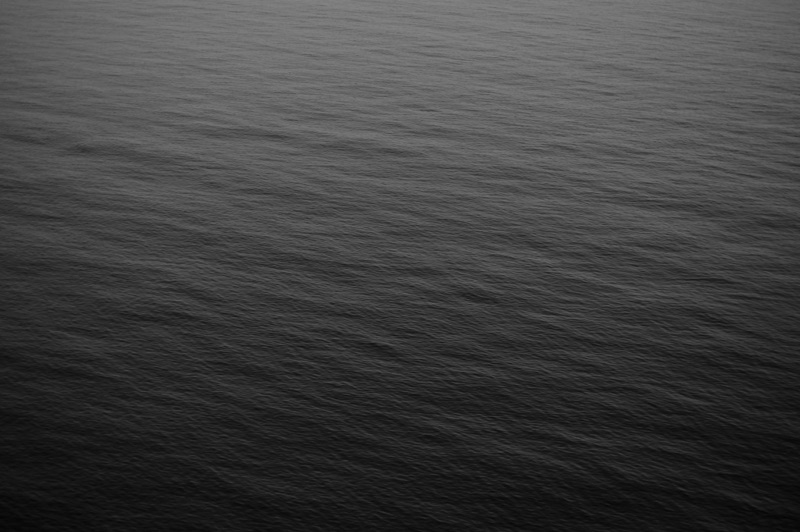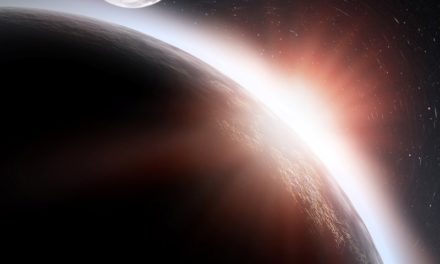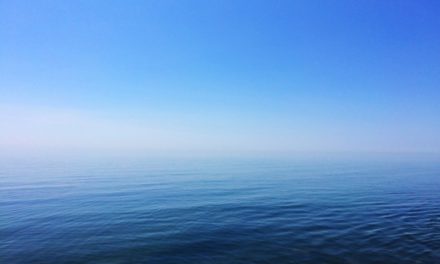The Bible is more than a history book or a collection of poems or wit. It is a special book designed and edited by God that is intended to be our resource for wisdom and instruction throughout eternity! The Bible calls God a potter (Isaiah 64:8). We see Him bending low in Creation Week and forming something out of the earth. When He stands up, there on the ground is the form of a man, a clay form. That’s the way many look at the Bible. It’s just another ordinary book with some interesting stories. That’s all.
But wait! God isn’t finished yet. He kneels back down and puts His mouth to the clay form and breathes His life into it. And something happens! The clay image becomes alive. We see it wasn’t just an earthen image. It had cells and tissues and organs and vessels and nerves and production sites for hormones and enzymes and digestive juices, with energy and thought and feelings. It had systems for vision and taste and hearing and touch and smell… and reproduction. And to this day we still find that singular creation fascinating and beyond the scope of our sciences to plumb.
And so it is with all things God makes and breathes His Spirit into… including His Word, the Bible.
We will be looking at Creation with special glasses on–to see what the Creator had in mind about the Plan of Redemption, for He knew what was coming, and He always tries to let His people know beforehand (Amos 3:7). But this approach is one of many, perhaps hundreds or thousands we could take to Creation Week. God’s mind is very deep and high and broad.
OUR CONDITION BEFORE CONVERSION
God loves working with those who are down and out, who find themselves in the lowest, most difficult and embarrassing situations in life. He’s the Creator. He doesn’t need anything great to start with. All He needs is a willing heart, someone to work with. And the less we bring to the table the better!
God’s book, the Bible, is quick to emphasize this point, too… in the first two verses. In these few lines we have the Creation and Re-creation stories introduced. Verse 1 tells us who is responsible for the changes, and verse 2 describes the condition of the subject before the transformation.
This study is based on the concept that every feature of Creation was either to illustrate of facilitate the Plan of Redemption, laid down before the foundations of the earth. According to this concept the Gospel was already in place prior to the fall of man. Before Adam and Eve ate from the Tree of Knowledge of Good and Evil, the Messiah was prepared to become man’s Substitute and the way back into God’s favor defined. Nothing would catch God by surprise. As Isaiah said, quoting God’s promise:
Isa 65:24 … before they call, I will answer
And one of the Gospel writers adds a divine principle Jesus taught.
Luke 14:28 For which of you, intending to build a tower, sits not down first, and counts the cost, whether he have sufficient to finish it?
Since Nature and Revelation have the same Author it is understandable that they would speak in harmony, though perhaps in different languages. God is not only all-knowing but also all-wise and all-powerful. He could have spoken everything into existence immediately. He was not confined to time or pre-existing matter. But He didn’t. In His foreknowledge He (as we shall see) designed Creation week to illustrate that great plan of Salvation, for He is not only the Creator but also the Re-creator.
Job 38:4 Where were you when I laid the foundations of the earth? Declare, if you have understanding.
The apostle John got wind of this possibility too and used the Creation format to introduce the Messiah. Both Genesis 1 and John 1 begin with the same words, “In the beginning…”. Both speak of Gods (in the plural), begin with light, then talk about the two waters (upper and lower). Actually the careful student can identify Christ’s work in each day of creation …in order. Moses took two chapters. John took five. Check it out!
The idea of Creation Week being a revelation of the Gospel plan was very exciting to me, but the proof of the pudding is in the tasting. Every aspect of creation must be compared to the re-creation theme. Would it hold up? You can decide for yourself as you peruse this study.
WHERE TO BEGIN?
The Gospel plan begins with a very crucial condition—sin has entered and must be dealt with. Without the existence of sin there would be no need of grace, forgiveness, a Saviour, or redemption. Jesus came to save sinners, not the righteous.
Mark 2:17 When Jesus heard it, he saith unto them, They that are whole have no need of the physician, but they that are sick: I came not to call the righteous, but sinners to repentance. (see also 1 Tim 1:15)
Moses began the creation story with the idea that God was responsible for it (Gen. 1:1). Some think that Creation Week begins there, in verse 1. Well, Creation does, but Creation Week for our earth actually begins in verse 3. That’s when God starts with His many “Lets”. In verse 2 Moses quickly adds the fact that something wasn’t right with the earth and it needed help. It wasn’t ready for habitation yet. Though every day of the 6 days of Creation received the “good” stamp by God, there was no mention of anything being “good” in verse 2. We see water already there, and apparently the soil was there too, all mixed up in the water, because there is no mention during Creation Week of a “Let there be soil” (or whatever it would have been called). We just see later in the week that the “dry” appeared as the waters were being drawn together.
Actually what Moses describes in verse 2 does not sound at all like what God would make. The phrase “without form and void” is used one other place in the Bible, and that is describing the earth after 6,000 years of Satan’s lordship. But before we look at the second verse let’s first consider why this might be so.
THE BIRTHPLACE OF SIN
The universe was not pure and clean when the Creator began His wonderful work on the planet we call home. The Bible talks about sin entering heaven before man ate from the Tree of Knowledge of Good and Evil.
Isa 14:12-15 How art thou fallen from heaven, O Lucifer, son of the morning! how art thou cut down to the ground, which didst weaken the nations! For thou hast said in thine heart, I will ascend into heaven, I will exalt my throne above the stars of God: I will sit also upon the mount of the congregation, in the sides of the north: I will ascend above the heights of the clouds; I will be like the most High.
Ezekiel adds more information about the fall of this mighty being.
Eze 28:14-15 Thou art the anointed cherub that covereth; and I have set thee so: thou wast upon the holy mountain of God; thou hast walked up and down in the midst of the stones of fire. Thou wast perfect in thy ways from the day that thou wast created, till iniquity was found in thee.
This “iniquity” did not come because of Adam’s sin, but preceded it. It was this fallen angel, taking on the disguise of a serpent, who tempted Eve at the Tree of Knowledge.
John the Revelator also refers to this fall in his book.
Rev 12:7-9 There was war in heaven: Michael and his angels fought against the dragon; and the dragon fought and his angels, and prevailed not; neither was their place found any more in heaven. And the great dragon was cast out, that old serpent, called the Devil, and Satan, which deceives the whole world: he was cast out into the earth, and his angels were cast out with him.
Where sin is there is always confusion, emptiness, chaos, darkness, and all forms of evil. If Satan and the third of the angelic host he deceived (Rev. 12:4) were cast to this earth, we can safely assume there would be evidence of it. That “evidence,” it appears, is summarized in the second verse of Genesis 1.
BEFORE CREATION WEEK BEGAN
So what was the condition of the earth before God started His creative work? According to verse 2 something was there. It wasn’t it just empty space. Creation Week starts with something there, for God did not take credit for the lack of organization or even the troubled waters. There was no pronouncement of anything being “good” at this time.
The Bible says it was “without form and void” and “darkness was upon the face of the deep”. To understand the depth of meaning in these phrases, let’s look at the original language. The numbers after the word are assigned in Strong’s Concordance. The interpretation of the word or phrase follows.
And the earth was without form8414 and void922…
8414 without form: to lie waste; a desolation (of surface), that is, desert; figuratively a worthless thing; adverbially in vain: – confusion, empty place, without form, nothing, (thing of) nought, vain, vanity, waste, wilderness.
922 void: to be empty; a vacuity, that is, (superficially) an indistinguishable ruin: – emptiness, void.
Isaiah 34:11 WEB uses these two Hebrew words (“without form” and “void”) to describe the utter desolation that will result to those nations that war against the Word.
But the pelican and the porcupine shall possess it; and the owl and the raven shall dwell therein: and he will stretch over it the line of confusion, 8414 and the plummet of emptiness 922.
The Good News Bible translates it this way:
Owls and ravens will take over the land. The LORD will make it a barren waste again, as it was before the creation.
Jeremiah also uses this identical phrase “without form and void” to describe the earth during the time between Christ’s second and third comings, the time when Satan and his angles will be confined to this earth with no one to tempt or harass. It is not a pretty sight. The earth is a mess, to put it simply.
Jer. 4:23-27 I beheld the earth, and, lo, it was without form, and void; and the heavens, and they had no light. I beheld the mountains, and, lo, they trembled, and all the hills moved lightly. I beheld, and, lo, there was no man, and all the birds of the heavens were fled. I beheld, and, lo, the fruitful place was a wilderness, and all the cities thereof were broken down.
Does confusion, emptiness, and vanity have their source in Truth, or in the adversary of truth? The prophetic eye of Jeremiah teaches us that the earth will be brought back (in part at least) to the same condition of the earth before Day 1.
But let’s continue. Moses has more to say in this verse, as if we needed to get a broader picture.
… and darkness2822 was upon the face of the deep.
The Hebrew word for darkness was not the kind God initiates (like as recorded in Exodus 20:21).
2822 darkness: figuratively misery, destruction, death, ignorance, sorrow, wickedness
When Moses wanted to talk about a “divine” darkness, he used an entirely different Hebrew word (note the Strong’s number associated with the word). This is not coincidental. The whole verse is described in these sin-ladened terms.
Exodus 20:21 And the people stood afar off, and Moses drew near unto the thick darknessH6205 where God was.
6205 darkness: a gross, thick darkness, or gloom (obscurity, partial or total darkness, cloudiness or heaviness of mind).
Let’s continue.
… and darkness was upon the faceH6440 of the deep8415.
H6440 the face (as the part that turns), countenance, front, person, surface (of ground) [plus many other meanings–these are the ones that seem most applicable to the context]
8415 deep: an abyss, as a surging [a violent rolling, inundating, desolating] mass of water
The word for “deep” in the Septuagint translation is the same word that is translated “bottomless pit” in Revelation 20:1-3. Imagine a huge 100’ tidal wave crashing down on a seacoast village. What a helpless, frightful experience that would be! That’s the picture we are given of the surging waters covering this earth. It wasn’t a placid, mirror-like pool calmly waiting the Creator’s word. It was angry, violent, turbulent.
The word for “face” has many applications, but it appears here that Moses is using it as we would describe what’s going on within a person. The face shows the emotion more than the clothes or any other part of the body. And we are looking at the “face of the deep,” the innermost recesses of the mind or heart. But notice what’s going on when we look at the “face” of creation at this point. The face isn’t calm, at peace. Inside it is violent, turbulent. This is very similar to another description in the Bible.
Isaiah 57:20-21 But the wicked are like the troubled sea, when it cannot rest, whose waters cast up mire and dirt. There is no peace, saith my God, to the wicked.
And for the third time before getting into the creation part, fearful that we might still miss the point, Moses states this theme in yet another way.
And the Spirit of God moved upon the face of the waters.4325
Hebrew has only one word for “water” [Hebrew: mayim: Strong’s number H4325]. It could be good, clean water, or foul smelling water, or anything in-between. Context determines the use. Does the context suggest these “waters” referred to as the “still waters” David led his flocks to, or the refreshing waters God provided for the Israelites from a rock in the desert? That doesn’t seem to fit the context of the verse. Let’s look at how context affects the translation of this word (H4325). Remember, it’s the same word as used in Gen. 1:2.
2Kings 18:27 GNB He replied, “Do you think you and the king are the only ones the emperor sent me to say all these things to? No, I am also talking to the people who are sitting on the wall, who will have to eat their excrement and drink their urine4325, just as you will.” (see also Isaiah 36:12)
There is nothing in the context of Genesis 1:2 to suggest that the “waters” were pure and undefiled, but rather putrid “waters”, like that which is cast off from the body. This is what the context says the Spirit of God was moving upon, in preparing it for creation.
THE SINNER DESCRIBED
Do you see the condition of the sinner without a saving knowledge of the Messiah in this verse? Will not confusion and emptiness, misery and chaos, ignorance and sorrow ever seek to overwhelm him or her? In short, this verse lays the foundation for the proclamation of the Gospel, that Jesus Christ came into the world to save sinners.
When you feel your worst, like a castoff from society, when you are at the lowest point in your life, when everything seems dark, crazy, messed up, confused, useless, hopeless, and perhaps even disgusting, then step aside and let God work! That is just the kind of material He likes to use. You can be in no situation bad enough for Him. None. He loves transforming people. That’s the message of the second verse in the Bible.
VERSE 1
But what about that first verse, the one that tells us who masterminded Creation, who was greater than all the hang-ups we read about in verse 2?
The Bible simply says it was Elohim (in Hebrew this word is used for God in the plural form). The one word that best describes this God, or Godhead, is love (1 John 4:8,16, John 3:16). Later we will learn (in John 1) that it was Jesus Christ, the Son of God, working in conjunction with the Father, the supreme deity in the universe. Moses simply calls them at this point God, the only one who can really turn all these negative forces into positive ones. Man tries to do it on his own, or on some other person’s recommendations. It seems we really hate to admit defeat. We come to God only after we have used up all our resources (money, time, energy, friends, ideas). The human heart is so proud! But if we don’t give God a shot at it, we will lose everything. We all know that deep down inside. Creation or re-creation is not a chance thing. It is a divinely orchestrated series of events. But it must start with our willingness.
Who is this Creator God? Can He be trusted? Is He friendly or controlling? That’s what the rest of the Bible is all about. It tells us about the Creator/Redeemer who alone has the power to positively change our life, who can take all our mess-ups, mistakes, and bungles, and make something beautiful out of them. Look at what God did with verse 2!
He created flowers and vines and trees to feast and soothe us,
mountains and valleys, rivers and lakes to frolic and refresh us,
birds and fish and insects and animals to serenade, amuse, and serve us,
stars and planets and moons to inspire and dumbfound us,
and a Sabbath day to enjoy us.
And all this out of that mess! What a God! Remember, this is the God who spoke galaxies and stars into existence, some stars big enough that our sun, with over half of its planets rotating around it, could easily fit inside! He can handle anything. Bring all your challenges to Him – your anger, over-mastering habits, sicknesses, confusion, poverty, or self-destructive powers – and let Him create for you a new “heaven” (mind) and a new “earth” (body)! That re-creative power is waiting only for a decision from you, a willingness to let Him do His transforming work in your life.
If you want another perspective on what life is like without God, you can go to another part of God’s creation, the skeletal system of our body. This particular chapter describes the fetal skeleton, life “without the law”. It might appear attractive at first, but the more you think about it I believe you will agree with me– if this is bliss, let me off! The Fetal Skeleton.
The record says, God’s Spirit moved [hovered, brooded] over the waters. It was ready to begin His work! Let’s see what can happen with an eager, loving God and a willing heart of a sinner.
Lesson for Day 0: Need activates the Spirit of God.
Go on to Day 1.






